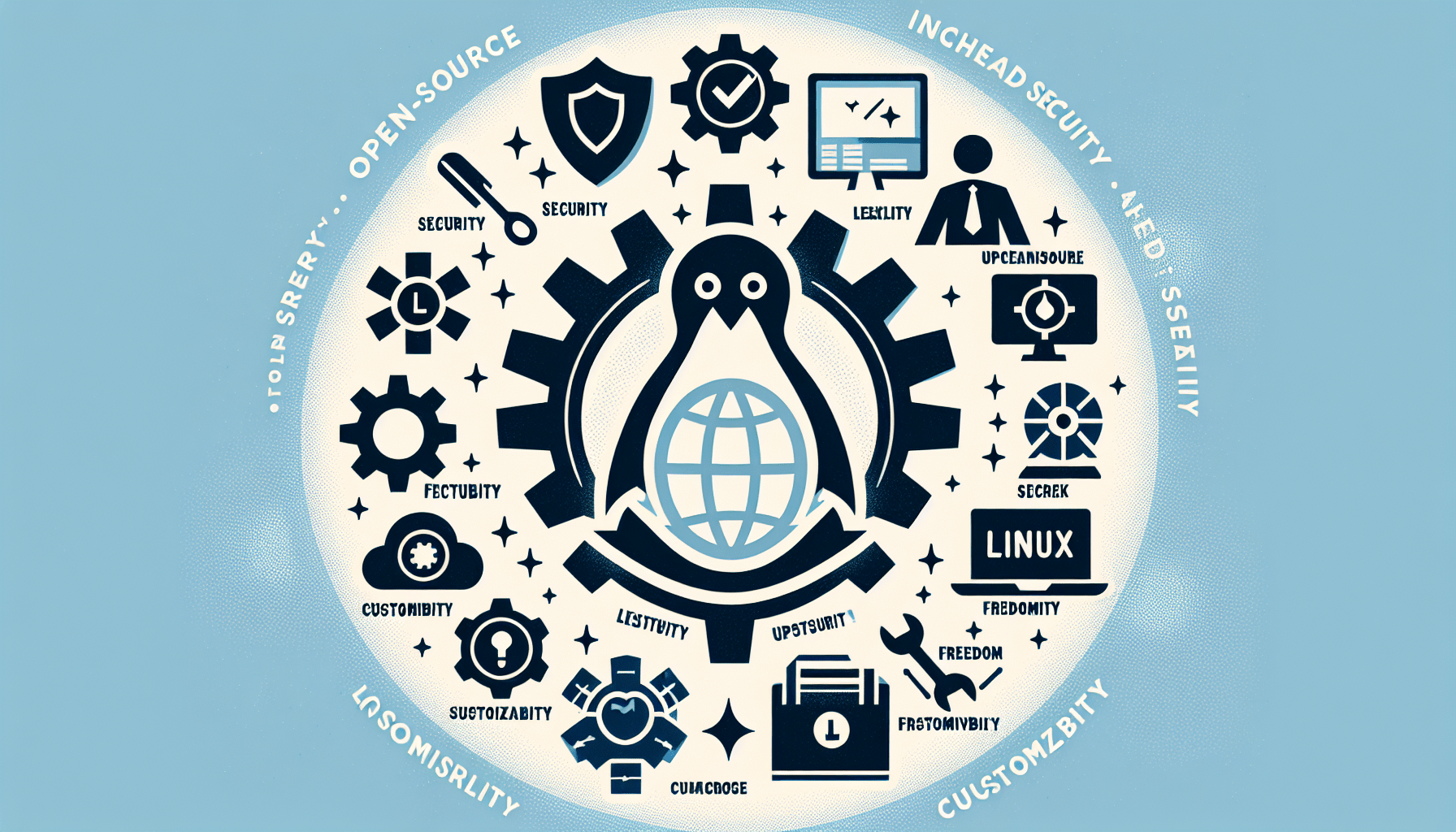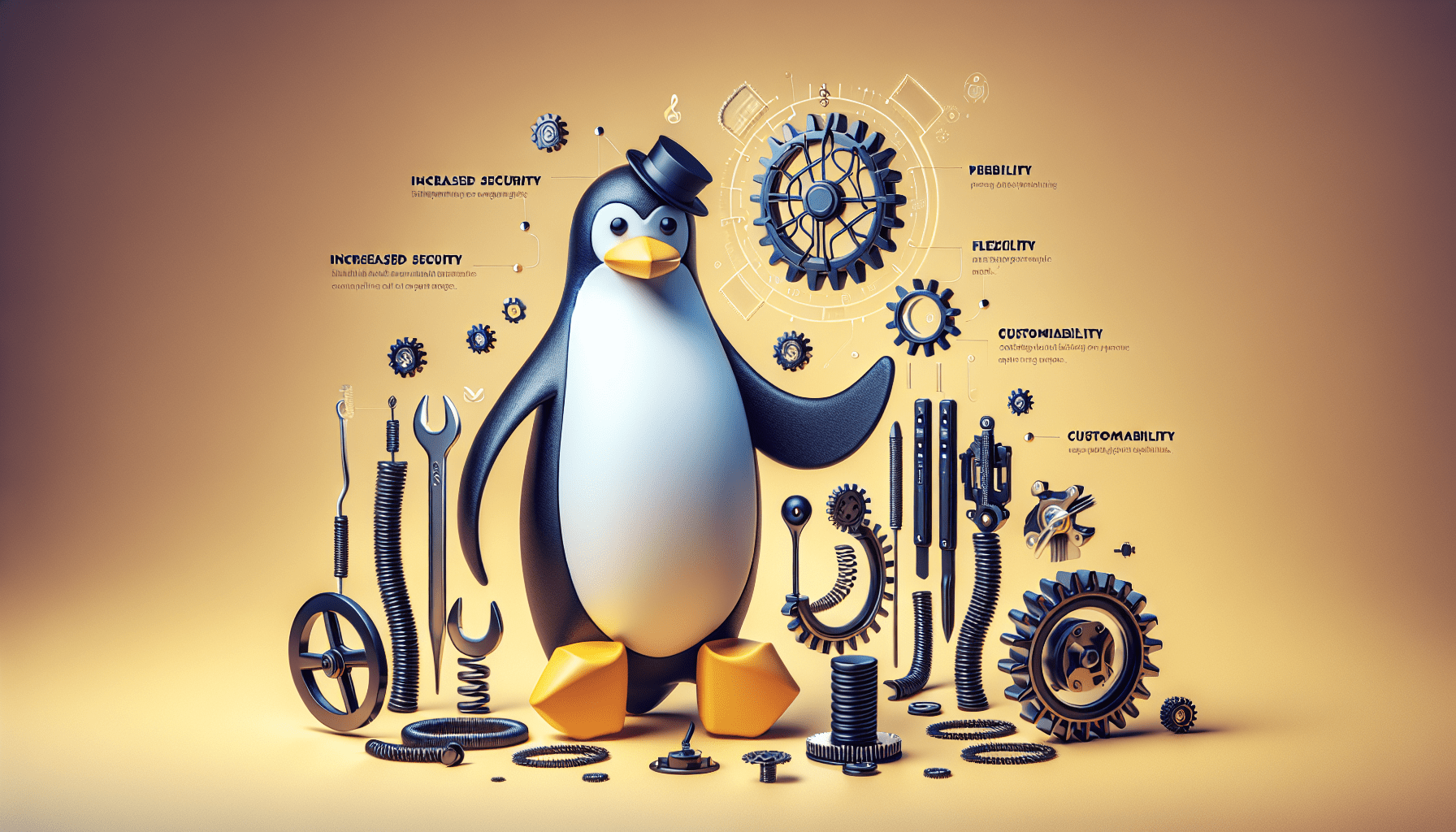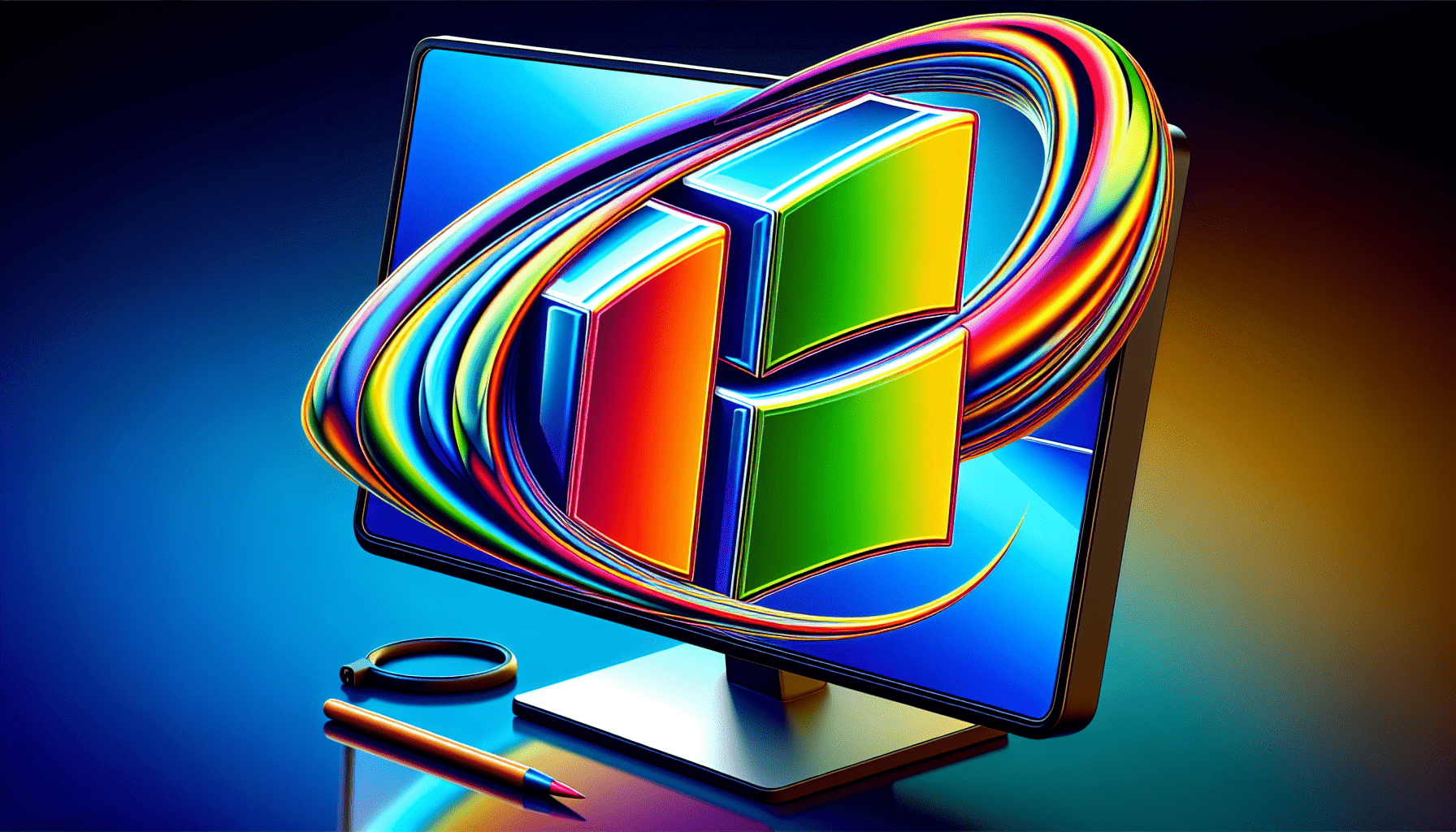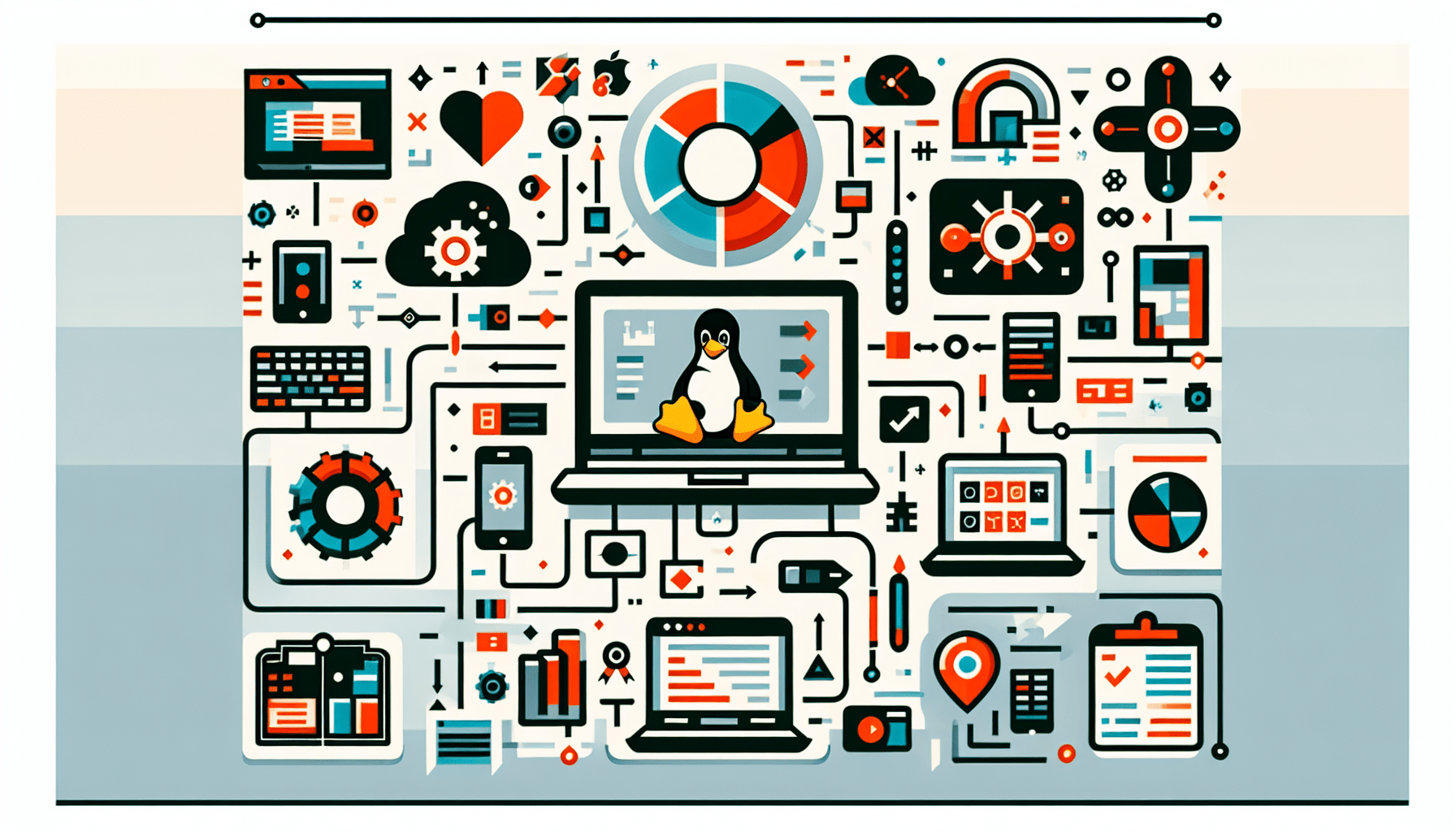







Have you ever wondered why so many individuals opt for Linux as their operating system of choice over Windows? The answer lies in the freedom, versatility, and security that Linux offers. With its open-source nature, Linux allows users to customize and modify the system to fit their specific needs, providing a truly personalized computing experience. Additionally, Linux boasts enhanced stability, excellent performance, and robust security measures, making it a compelling option for those seeking a reliable and secure operating system. In this article, we will explore the reasons behind the growing preference for Linux over Windows and shed light on why it has garnered such a dedicated fan base.
Security and Privacy
Linux offers several advantages when it comes to security and privacy. Firstly, Linux operating systems tend to have fewer vulnerabilities and are less susceptible to malware compared to operating systems like Windows. This is because Linux is built on the foundation of open-source technology, which allows for transparency and scrutiny by a large community of developers and users. Any potential security issues or bugs can be quickly identified and addressed, making Linux a more secure option for users.
Additionally, Linux provides users with greater control over their personal data. Unlike Windows, which often collects user data for various purposes, Linux respects user privacy and provides a more secure environment for sensitive information. With Linux, you have the power to choose what information is shared and with whom, giving you the peace of mind that your privacy is being protected.
Cost
One of the most notable advantages of Linux is its cost-effectiveness. Unlike most operating systems, Linux is free to download and use. You don’t have to worry about spending money on licensing fees or expensive subscriptions. This makes Linux an attractive option for individuals and organizations looking to save money on their software.
Moreover, Linux has lower hardware requirements compared to other operating systems like Windows. It is designed to be lightweight and efficient, allowing it to run smoothly on older or low-spec hardware. This means you can breathe new life into your older devices without having to invest in expensive upgrades.

Customization and Flexibility
Linux offers unparalleled customization and flexibility that is unmatched by other operating systems. With Linux, you have the ability to modify and tailor the operating system to suit your specific needs and preferences. Whether you’re a developer, a creative professional, or a casual user, Linux provides a wide variety of desktop environments and user interfaces to choose from. This flexibility allows you to create a personalized computing experience that aligns perfectly with your workflow and aesthetic preferences.
Furthermore, Linux provides different distributions, each with its own set of features and specialized applications. Whether you prioritize stability, gaming, multimedia production, or cybersecurity, there is a Linux distribution out there that caters to your specific requirements. This flexibility makes Linux a versatile choice for a wide range of users.
Stability and Reliability
Linux distributions are renowned for their stability and reliability. Unlike some other operating systems, Linux is less prone to crashes and performance issues. Its robust architecture and efficient design contribute to a smoother user experience. You can trust that your Linux system will remain stable even when handling resource-intensive tasks or running for extended periods.
Moreover, Linux distributions typically have longer support and update lifespans compared to proprietary operating systems. This means that you can rely on the Linux community to provide frequent updates, security patches, and bug fixes for an extended period. This commitment to long-term support ensures that your system remains up-to-date and secure.

Community and Support
One of the greatest strengths of Linux is its large and active user community. The Linux community is a vibrant and passionate group of individuals who are always eager to help fellow users. Whether you’re a beginner seeking guidance or an experienced user with a specific technical query, you’ll find extensive online resources and forums dedicated to Linux troubleshooting.
This strong community involvement also translates into frequent updates and bug fixes. Linux distributions benefit greatly from the collective wisdom and expertise of its users, resulting in a constantly evolving and improving system. This ensures that you have access to the latest features and advancements driven by the collaborative efforts of the Linux community.
Performance and System Resources
Linux is built with a lightweight and efficient design that maximizes performance and minimizes system resource usage. This can be particularly advantageous if you’re working with older or low-spec hardware. Linux’s efficient resource management allows for smooth multitasking and optimal performance even on devices with limited capabilities.
Additionally, Linux operates with minimal background processes, reducing unnecessary system resource usage. This contributes to better overall system performance, faster boot times, and a more responsive user interface. Whether you’re an avid gamer, a content creator, or a casual user, Linux ensures that your system is running efficiently without any unnecessary resource drain.
Compatibility and Open Standards
Linux is highly compatible with a wide range of software and file formats. Unlike some operating systems that may have restrictions or compatibility issues, Linux embraces open standards, making it easier for developers and users to seamlessly work with different applications and file types. This compatibility extends beyond software and file formats and can also be observed in the interoperability of Linux with other operating systems and devices. Whether you need to share files with Windows users or connect your Linux system to a diverse array of devices, Linux provides a seamless experience.
Learning and Skill Development
Using Linux provides an excellent opportunity to understand and learn about the inner workings of an operating system. Linux’s open-source nature encourages exploration and experimentation, allowing users to dive into the intricacies of the system and gain a deeper understanding of how everything functions. This hands-on learning experience can be immensely valuable for individuals interested in computer science, software development, or IT.
Furthermore, developing Linux skills can enhance career opportunities. As Linux continues to gain popularity, professionals with Linux proficiency are in high demand across various industries. Whether you’re working in cybersecurity, software development, or system administration, possessing Linux skills can give you a competitive edge and open up new career opportunities.
Philosophical and Ideological Reasons
For many users, Linux is not just about practical benefits but also about embracing a particular set of principles and ideologies. Linux emphasizes free and open-source software, which promotes collaboration, transparency, and sharing. By using Linux, users actively support the free software movement and contribute to a community-driven approach to software development.
Furthermore, Linux users often prefer to avoid proprietary software and vendor lock-in. Unlike some operating systems that tightly control and restrict access to their software, Linux allows users the freedom to modify, redistribute, and customize the system according to their needs. This emphasis on openness empowers individuals and fosters a sense of ownership and control over their computing environment.
Specialized Use Cases and Industries
Linux has gained significant traction in specialized use cases and industries. It is a particularly popular choice among developers and programmers due to its flexibility, robustness, and extensive collection of software development tools. The Linux ecosystem provides an ideal environment for coding, debugging, and software testing, making it the preferred choice for many professionals in the field.
In addition to software development, Linux is widely used in server environments. Its stability, security, and resource efficiency make it an ideal operating system for running servers and hosting websites or applications. Linux servers are renowned for their reliability and ability to handle high volumes of traffic with minimal downtime.
Lastly, Linux is favored by security-conscious individuals and organizations. Its open-source nature enables thorough security inspections by the vast community of developers and users. This scrutiny helps uncover potential vulnerabilities and ensures the continuous improvement of security features. As a result, Linux provides a reliable and secure platform for those who prioritize data protection and safeguarding against cyber threats.
In conclusion, Linux offers numerous advantages that make it a preferred choice for many users. From enhanced security and privacy to cost-effectiveness, customization options, and compatibility, Linux provides a versatile and robust operating system. Whether you’re an individual seeking a reliable and efficient system or an organization looking for a secure and flexible platform, Linux proves its worth in various aspects. Its dedicated community and continual development ensure that Linux remains a powerful and innovative option for both personal and professional use.





